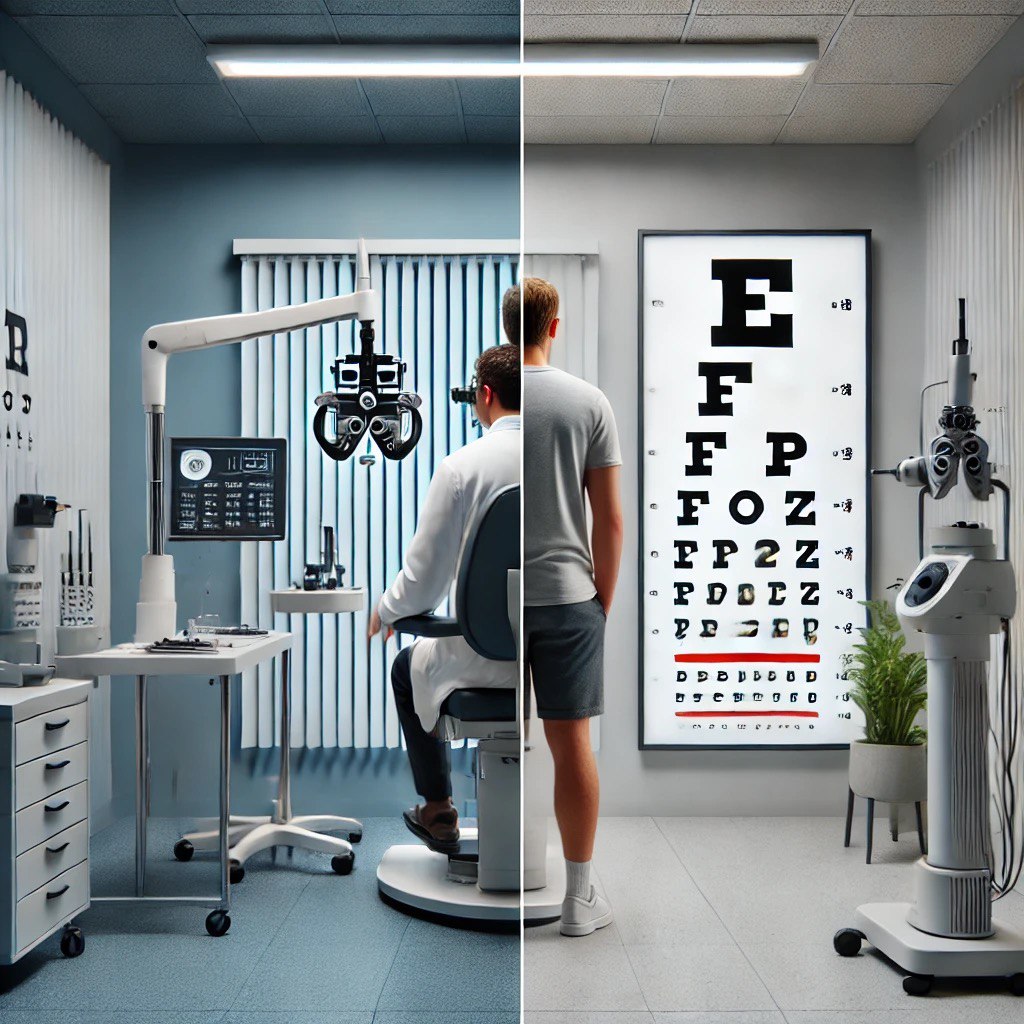Eye Exams vs Vision Screenings: Why Comprehensive Testing Is Key

Many people assume that a simple vision screening is sufficient to maintain healthy eyes. However, vision screenings and comprehensive eye exams are vastly different, each serving unique purposes. While a vision screening offers a quick check of your ability to see clearly, it doesn’t provide a complete picture of your eye health. In contrast, a comprehensive eye exam dives deeper, identifying potential issues that screenings often miss. At OptiCare Health, our thorough eye exams address vision problems and detect early signs of underlying health conditions. Understanding the differences between these two assessments is vital for protecting your eye and overall health.
1. Vision Screenings: A Quick Check for Basic Problems
Vision screenings are brief assessments designed to identify common vision issues such as nearsightedness, farsightedness, or astigmatism. These screenings typically use tools like eye charts or vision machines and are often conducted in schools, workplaces, or health fairs.
While convenient, vision screenings are not performed by specialists and lack the depth to evaluate your eye’s overall health. They cannot detect early signs of diseases like glaucoma or cataracts and don’t assess essential functions such as eye coordination or depth perception. Screenings are a useful first step but fall short of comprehensive care.
2. Comprehensive Eye Exams: Detecting the Hidden
A comprehensive eye exam goes far beyond basic vision testing, providing a detailed evaluation of your eye health. It identifies refractive errors like those caught in screenings but also examines the retina, optic nerve, and eye muscles.
These tests detect conditions like glaucoma, macular degeneration, or diabetic retinopathy—serious diseases that often show no early symptoms. Early detection through comprehensive exams enables timely treatment and helps prevent irreversible vision loss. By ensuring your eyes are functioning optimally, these exams can significantly enhance your quality of life.
3. Your Eyes: A Window to Your Overall Health
Your eyes are unique in that they allow medical professionals to observe blood vessels, nerves, and other structures without invasive procedures. This makes comprehensive eye exams a powerful tool for monitoring overall health.
Subtle changes in your eye’s blood vessels can signal early signs of systemic conditions like high blood pressure or diabetes, often before other symptoms appear. Autoimmune disorders or neurological conditions such as multiple sclerosis may also show up as vision changes detectable during an eye exam. Regular comprehensive exams protect not only your vision but also provide insights into your broader health.
4. Exams Tailored to Your Unique Needs
Unlike vision screenings, comprehensive eye exams are customized for each individual.
- Children: Focus on identifying vision issues like lazy eye or focusing problems that may affect learning and development.
- Adults: Monitor gradual vision changes and detect emerging health conditions like diabetes that may impact eye health.
- Seniors: Address age-related conditions such as cataracts, glaucoma, or macular degeneration.
Additionally, these exams consider personal risk factors, like family history, to ensure tailored care. Comprehensive exams are an essential part of personalized healthcare.
5. Protecting Your Long-Term Vision
Vision changes often occur so gradually that they can go unnoticed until they interfere with daily life. Regular comprehensive exams help track these changes, enabling timely updates to prescriptions and early intervention for potential issues.
For instance, detecting a minor refractive error or an early-stage cataract can prevent unnecessary strain and discomfort. Maintaining clear vision supports safety, productivity, and confidence, especially for tasks like driving or working on digital devices. Routine exams are an investment in the longevity of your vision and overall well-being.
Make Eye Health a Priority
While vision screenings are a good starting point, they only scratch the surface of your eye health. Comprehensive eye exams, like those offered at OptiCare Health, go beyond the basics, safeguarding both your vision and your overall health.
By making regular eye exams a priority, you ensure that your eyes—and your body—stay in their best condition. Take charge of your health today by scheduling a comprehensive eye exam with us at OptiCare Health. Your future self will thank you!
